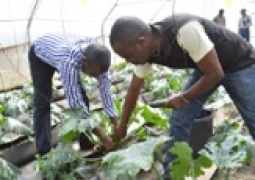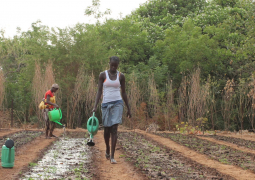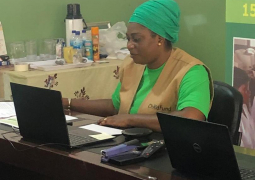
The project is expected to rehabilitate 50,000 hectares of land and create 25,000 green jobs over a five-year period for rural youth, returning migrants, farmers and small-to-medium scale entrepreneurs in agriculture, aquaculture, agroforestry and ecotourism.
The project will be teaching sustainable forest and land management (SFLM) techniques and their application to degraded croplands, rice paddies, forests and fisheries.
The Gambia’s Ministry of Environment, Climate Change and Natural Resources will act as the executing agency to mobilize project stakeholders and address the environmental and socio-economic impacts that land degradation has on sustainability, security and stability in target communities.
The project will conduct a small business incubator inviting youth and migrants to develop small businesses along the target land-based value chains, including rice production and distribution, wood lots for sustainable fuel wood production and supply contracts for local products that are sustainably produced and transported by local communities.
The project is expected to work in collaboration with other initiatives in The Gambia targeted at migrants and unemployed rural youth.
Meanwhile, Youth Connekt Gambia’s number one goal is set to create 100,000 jobs by 2025.
To achieve this, everyone must play their part. “So let’s keep going, surely we will all get there.”
The Youth Connekt Initiative was launched in 2012 by the Government of the Republic of Rwanda and the United Nations Development Programme (UNDP).
The overall goal of this Pan-African multidimensional initiative is to engage young people in all spheres of nation building including enhancing their own (economic) empowerment.
The model was endorsed by the African Union as a major implementing modality of the African Youth Charter, and equally has been embraced by a good number of AU Member States for its innovative design and implementation, Policy harmonization, harnessing programmes and partnerships within the country or nations.
It further aims to provide African youth with the skills, networks and information needed to scale their initiatives for 31 member states.
The Gambia made voluntary commitment to contribute to the achievement of the Youth Connekt Africa goals in the following ways:
- Create 100,000 jobs by 2025 in sustainable job environments in emerging industries.
- Aligned to the National Development (NDP) goal of reducing youth unemployment.
- Create 250,000 opportunities through Relevant Education, training and enrolment in workplaces.
- Identify, nurture and grow 10,000 leaders that provide solutions, participate in advocacy and become role models in their communities.
- Develop sustainable initiatives and policies that reduce gender inequality in education, jobs, technology and leadership.
- Nurture 150 digital ambassadors in each region to collectively help connect, digitally empower and provide 15,000 youths with skills.





